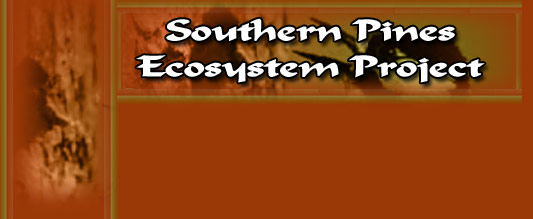

|
Prior to the 1994 Interior Department's announcement of the new "user friendly" Endangered Species Act and 10 Point Policy Change, the U.S. Fish and Wildlife Service implemented what is referred to as the "Safe Harbor" Program in the North Carolina Sandhills region. It's implementation was part of what former Secretary Bruce Babbitt credited as the "Quiet Revolution" and conservationists see as a stealth inside attack on the Endangered Species Act. Rather than implementing and enforcing the Endangered Species Act as written, the U.S. Department of the Interior, Fish and Wildlife Service working hand-in-hand with the Forest Products Industry lobbyists, Cattlemen's Association lobbyists and others sympathetic to the private profit interests of the corporate "regulated community" made major significant changes to the law without Congressional approval. Thus, further weakening the ESA to make it corporate "user friendly." The name alone of the ESA changes, "Safe Harbor," is an insidious misnomer from the perspective of species conservation. The only Safe Harbor that is created is for corporate landholders and developers that desire to hide from ESA enforcement of species "take" (kill, harm, etc.) restriction found in Section 9 of the Act. Like ESA Section 10 exceptions from the Act to permit "Incidental Take," the Safe Harbor program, and now Rule, allows a cumulative "take" of the endangered Red Cockaded Woodpecker and other endangered species. Rather than taking actions to recover endangered species by increasing their population throughout the historical range and distribution, "Safe Harbor" plans only for the maintenance of some existing populations. This sort of maintenance of species numbers is referred to as a "baseline" population. In order to maintain a "baseline" population of Red Cockaded Woodpeckers, the Fish & Wildlife Service enters into a Safe Harbor Agreement with a landholder that is willing to enhance habitat in the short-term in exchange for receiving a "No Surprises" Assurance and guarantee that in the future the landholder can destroy that habitat. In addition, the landholder will be given a "Incidental Take Permit" to kill any additional Red Cockaded Woodpeckers that are on the land that were not there before the Safe Harbor Agreement was entered into. Besides the issue of only maintaining a "baseline" population, another controversy exists over Safe Harbor translocation of species. While there has been some success in the translocation in a few selective species to aid in recovery, there is no scientific evidence that such a method can be applied successfully to all species. If fact there is a great about of scientific evidence, published and unpublished studies, that indicates that species conservation is most successful when done in place (in situ). However, powerful corporate interests, such as International Paper, do not want to conserve the endangered Red Cockaded Woodpecker and manage Longleaf pine forest habitats where the corporation is going to harvest the trees. Instead, International Paper received "Incidental Take Permits" with Safe Harbor and No Surprises Assurances, from U.S. Fish & Wildlife Service, to capture and translocate the endangered birds occupying more than 5 MILLION ACRES. If any of the birds survived translocation to an "experimental forest" and increased in numbers overtime, International Paper could receive "credits" to receive endangered species "take" in other timber operation areas or sell the "credits" to other timber companies desiring to kill (take) the Red Cockaded Woodpecker. In addition, to giving corporate landholders and developers permits and assurances to "take" endangered, threatened and candidate species. The U.S. Department of the Interior's Budget is subsidizing the Safe Harbor Program and Incidental Take Permits (Section 10 HCP exception of the Endangered Species Act). WHAT YOU CAN DO TO SINK "SAFE HARBOR" AND HELP ENDANGERED SPECIES SAIL TOWARDS RECOVERY Call and write your local Congressional Representatives - Request that they oppose funding of the Department of the Interior, Fish & Wildlife Service "Safe Harbor" Programs and HCP Incidental Take Permits with No Surprises assurances. Request that your Representative support Service programs that can demonstrate recovery of endangered species. Species Needs NOT Corporate Greed. TO LEARN MORE New ESA Rules - Safe Harbor & Candidate Conservation Agreements with Assurances [Federal Register: January 22, 2001 (Volume 66, Number 14)] The Quiet Revolution, US Dept. of the Interior publication No
Surprises Assurances to Landholders to "Take" Endangered
Species
|